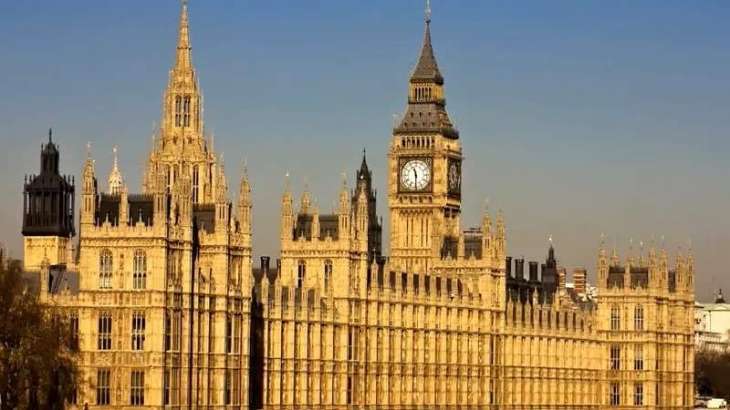British right-wing populist party Reform UK is unlikely to win seats in the next general election, but it can affect the result by siphoning disaffected Leave voters away from the Conservative Party, experts told Sputnik
MOSCOW (Pakistan Point News / Sputnik - 29th November, 2022) British right-wing populist party Reform UK is unlikely to win seats in the next general election, but it can affect the result by siphoning disaffected Leave voters away from the Conservative Party, experts told Sputnik.
Last week, Reform UK's founder, Nigel Farage, wrote in The Telegraph that the party that he created in 2019 and led until 2021 is going to field a full slate of candidates at the next general election. This comes as an unpleasant surprise for the ruling Conservative party, as it is already projected to be wiped out in the next electoral contest, its poll numbers being at historical lows in the wake of Boris Johnson and Liz Truss resigning amid public scandals.
While new Tory leader Rishi Sunak is trying to right the ship ahead of the next election, the latest Ipsos poll shows 55% of UK citizens expect Sunak to lose the contest. According to the latest poll from Conservative peer Lord Michael Ashcroft, the party does not own any important policy issues, with the exception of national security and defense.
Amid plummeting public support for Conservatives, the last thing the party need is Reform UK throwing its hat into the ring, since Farage and his supporters could tip the scales even more toward Labour, as, unlike in the 2019 election, they will not be withdrawing candidates from certain marginal seats in order to maximize the Tories' chances.
"The strength of the Reform party doesn't really lie in whether it's going to pick up a seat, it's how much support it takes away from the Conservatives," Sir John Curtice, professor of Politics at the University of Strathclyde, said, noting that the vote for the kind of platform that Reform UK wants to promote is not concentrated enough to give the party a win.
The expert suggested that if Farage goes back to campaigning, the party could take some support away from the Conservatives, specifically among people angered by the rising levels of immigration as well as those who are disaffected with Tory governance but who are very strongly pro-Leave and thus will not support Labour.
A "slightly more difficult question is what those people would have done if Reform didn't fight in those (Conservative-held) Constituencies. But probably it's still (that) more of them might've ended up voting Conservative than voting Labour. So yeah, the Tories don't want Nigel Farage going back to campaigning for Reform UK, not because of direct losses; it's because they'll pick up a little bit of the much-diminished Conservative vote," Curtice added.
Meanwhile, Peter Dorey, professor of British politics at Cardiff University, also thinks that Reform UK would be very unlikely to gain any seats, "but they would probably take enough votes away from either the Conservative or the Labour Party."
"In these 'marginal' seats (won in 2019 by a very narrow margin), Reform UK could cause some electoral damage to both main parties - attracting support from Right-wing anti-EU Conservatives and from pro-Brexit working-class voters who previously voted Labour," Dorey stated, noting that even though the number of Brexit supporters is declining, those who still favor leaving the European Union regard Farage as a "patriotic hero" fighting against the establishment, despite his private school education and work as a commodities trader.
Still, it is the Conservatives and Liberal Democrats who are most likely to benefit from Reform UK joining the race, Curtice said, with the caveat that "it's a bit more complicated, because some of the people who would switch from having voted Conservative in 2019 to Reform in 2024 would be people who, perhaps, would have voted Labour if Reform weren't available on the ballot paper." This means you cannot make assumptions based on the 2019 election, even though more of these people would probably vote Conservative than Labour next time.
Even though the voter concentration does not benefit Reform UK, the party could potentially eke out a victory in the South Thanet constituency in Kent, due to it being the arrival point for illegal migrants crossing the English Channel by boat, Curtice noted.
The Strathclyde University professor explained that the United Kingdom has seen an influx of people from across the world, including refugees from Afghanistan, Ukraine and Hong Kong, and it is the issue of Channel crossing by people with no access to migration programs that creates political controversy. Especially in that part of Kent, which is "particularly exposed, if this is the right word, to that particular migratory flow and where, therefore, it is a particular issue."
And even though Farage's party has never managed to win the seat in that constituency, it did well there in the past. This makes it the most likely place for Reform UK to succeed, depending on what happens to migratory flows in the next two years, according to the expert.




